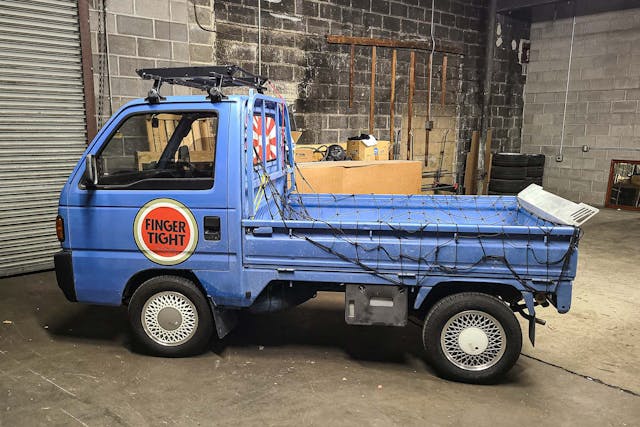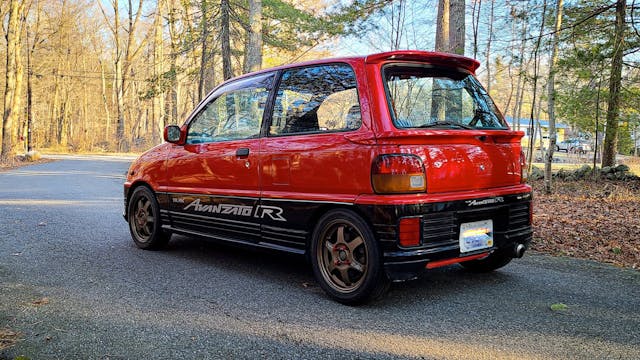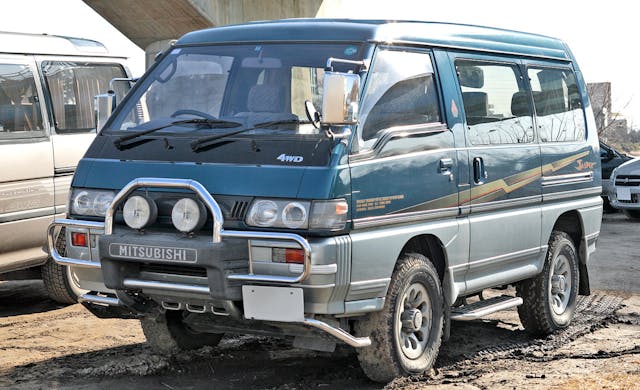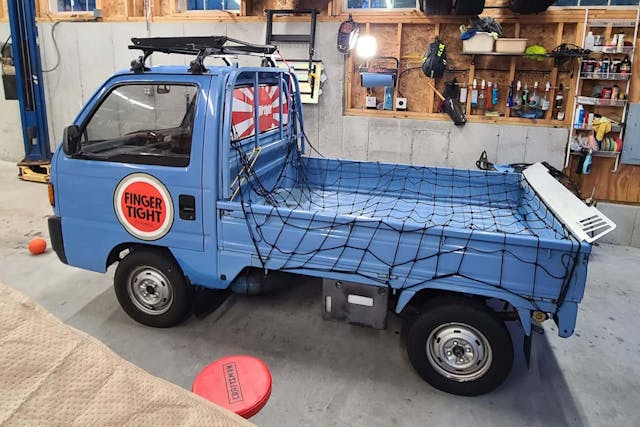Media | Articles
Maine and Rhode Island take aim at JDM cars, but why?

Small-size JDM vehicles are being targeted by DMVs in Maine and Rhode Island, and owners of those vehicles—legally brought to the U.S. under the federal 25-year import law—are fighting back. So is SEMA.
Maine began deregistering small Mitsubishi Delica vans in April, and Rhode Island started down a similar path earlier this month, notifying registered owners of kei cars and trucks that their Japanese rides could no longer be driven on public roads and they should turn in their plates.
Rhode Island resident Chuck Whoczynski, an avid auto enthusiast and co-host of the Revival Motoring podcast, owns a 1990 Honda Acty and a ’90s Daihatsu Mira TR-XX Avanzato hatchback, which he registered three years ago and two years ago, respectively. In Whoczynski’s podcast on August 12 (beginning at the 105-minute mark), he described the situation as “an attack on motoring enthusiasts,” and he vowed to fight, even if that means going to court.
“You’re going to need a f*****g wrecking ball to get those plates back from me,” he said. “You’re going to need to send in a f*****g S.W.A.T. team.”
Whoczynski told The Drive that he received a letter, dated August 2, from Law Enforcement Investigator Billy Goodwin directing him to contact the DMV regarding a “registration investigation.” When Whoczynski called as instructed, a DMV representative cited a low-speed law (Chapter 31-19.4-1) that was written in 2012 for Prudence Island, which can only be reached by boat and has a population of fewer than 100 people.
Marketplace
Buy and sell classics with confidence

Whoczynski points out that Rhode Island has no state laws restricting the use of kei-class vehicles on public roads, and he asked the DMV what has changed since he legally registered his vehicles. Whoczynski said he was told, “They do not meet Federal Motor Vehicle Safety Standards”—a moot point since they were imported under the 25-year law, which states, “A motor vehicle that is at least 25 years old can be lawfully imported into the U.S. without regard to whether it complies with all applicable FMVSS.”
Whoczynski claims kei cars are no more dangerous than 1960s Volkswagen Beetles or 1970s Ford Pintos, some of which caught fire in rear-end collisions—“They had bumper stickers that said, ‘Hit me and we’ll die together.’” He also claims the DMV told him, “There’s been an influx of (these) cars in the state.” To which he said, “So what?”
Meanwhile in Maine, the Bureau of Motor Vehicles (BMV) now considers the Mitsubishi Delica an “off-road vehicle” and, in accordance with Title 29-A, “Off-road vehicles may not be registered.” According to detailed reports in Crankshaft Culture and Autoblog, that term would not have included a Delica until June 15, when Maine passed a law that clarifies the definition. Maine now describes an off-road vehicle as “a motor vehicle that, because of the vehicle’s design and, configuration, original manufacture, or original intended use, does not meet the inspection standards of chapter 15, the Federal Motor Vehicle Safety Standards, the United States Environmental Protection Agency’s pollutant requirements, or the National Highway Traffic and Safety Administration’s crash testing standards and that is not a moped or motorcycle.”

Concerning the Delica, in particular, the Maine Secretary of State told Autoblog: “Given that these vehicles are generally right-hand steerage and have few, if any modern safety features or emission controls, the National Highway Traffic Safety Administration and EPA have both ruled that this class of vehicles may be only used for off road farming (or similar) use. Maine considers these vehicles to be ATVs.”
Christian Robinson, Director of State Government Affairs for the Specialty Equipment Market Association (SEMA), concedes that “this type of language is not abnormal and is generally what you would see for farm-use vehicles, or certain types of OHVs or ATVs,” but that doesn’t mean it’s right. SEMA has already been in contact the Maine Secretary of State’s office, and Robinson says, “It is our belief that a legislative fix may be required to resolve this issue.”
As for Rhode Island, the “situation is still developing. We’ve reached out to the DMV and are working to ascertain on what grounds they are cancelling registrations. The letters vehicle owners receive do not specify the statute on which their license plates are being revoked.”
Robinson says Rhode Island may already be backtracking. Late last week, The Drive reported that some kei car owners have been told “they’re free to drive their vehicles like normal.” On the other hand, others who turned in their plates to the DMV as instructed have not been able to get them back.
Hagerty reached out to the Rhode Island DMV for clarification, but we have not received a reply.

As for Chuck Whoczynski, he told The Drive that the flip-flopping proves Rhode Island knows it “doesn’t have a legal leg to stand on … They know they’re gonna lose.”
While Rhode Island has not instituted a law that speaks directly to kei car registration—which is owners’ main bone of contention—SEMA’s Robinson points out that “there are two distinct issues at play here,” the federal 25-year import law and each state’s right to define what vehicles can and cannot be legally registered.
“The federal law referenced deals with the importation of foreign vehicles,” he says. “The Imported Vehicle Safety Compliance Act (1988) allows collectors to legally import vehicles that are over 25 years old that were not intended for the American market. However, the import law does not require that states title and/or register these vehicles. In general, it’s up to each state to determine how to handle vehicle registrations. That’s why you see a patchwork of different rules and regulations regarding titling and registration. One state’s requirements can vary dramatically from the next.”
To that end, the SEMA Action Network publishes a toolkit to help enthusiasts navigate their state’s laws.
You can bet, however, that with SEMA’s support, JDM owners in Maine and Rhode Island will continue to fight for the right to register and operate their vehicles. Some are just voicing their displeasure more loudly than others.
As Whoczynski warns, “They’re kicking a hornets’ nest.”


I was about to buy a Subaru Sambar… so close. But when youtubers in NY started telling horror stories about registration revocation, I decided now’s probably not the best time. If we can start to turn this around, I’ll join the crew. Until either I’m out of NY or they change their tone on allowing these vehicles on the road, I’ll have to wait.
It’s never been professional when you have to use f-bombs to claim you know the law over the government, the guy in this article sounds like an unconvincing and cliche’d redneck